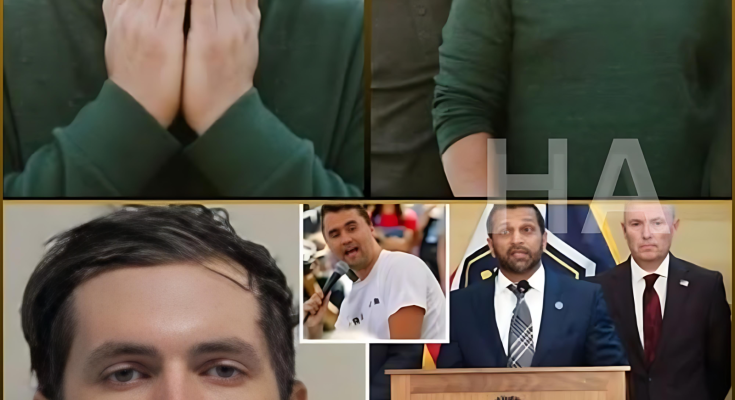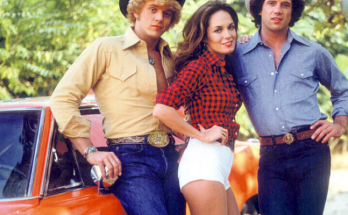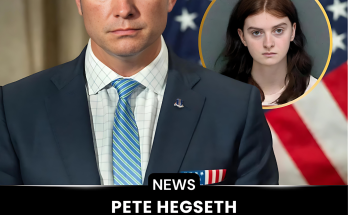A Father at the Door
The house had not changed, but Matt Robinson had.
He still sat at the same kitchen table where his family once gathered for dinner—where fork scratches etched quiet testimony into the pine boards, and the clock on the wall beat out its steady rhythm as if time itself had refused to mourn. Yet now the space around him felt altered, thinned, like air after a storm. The roast-chicken scent that used to mean home still drifted through the vents on certain evenings, though he knew it was only memory pretending to be fragrance.
Matt had built homes his entire adult life. He ran a small construction business that taught him how to read weather, how to square corners, how to brace a wall so it would stand in the wind. He believed in work that told the truth—because lumber never lied the way people sometimes did.
But there was no blueprint for what to do when the storm began inside your own house.
The Knock That Changed Everything
Thirty-two days earlier, at dawn, a knock came at the door.
People later said it was soft. Some called it polite.
To Matt, it sounded like the moment a day chooses itself.
Two officers stood in the morning light, hats in hand, voices gentle but firm. Behind them waited a silence so thick it could be carried only by professionals. His wife, Amber, pressed her fingers against the doorframe as though testing whether the world was still solid. Their younger sons sat on the stairs, small and silent sailors watching the captain for a signal in a storm.
Upstairs, eighteen-year-old Tyler waited. When the officers entered his room, he didn’t fight. He didn’t plead. He looked at his father once—just once—and in that look Matt saw both presence and absence: I am here, and I am already far away.
The walk to the cruiser took twelve seconds that lasted a lifetime.
A neighbor froze in her bathrobe; another lowered his phone to his chest like a prayer book.
The September air was thin, the mountains steady, and Matt’s hands hung useless at his sides. He had not called the police, but he had not stopped them either. Somewhere between love and truth, he had learned, the road forks—and neither path comes with signs.
The Machinery of Ordinary Days
In the weeks that followed, life insisted on continuing.
Mail still arrived. The dog still needed to be let out. Trash day stayed Friday.
Grief, Matt discovered, does not pause the chores.
He went to work. He lifted plywood sheets, checked joists, signed invoices. At lunch he watched his younger crew joke about weekend plans. Their laughter didn’t anger him; it comforted him, proof that the world hadn’t broken all the way through.
At home, he washed dishes by hand because the sound of running water helped him think. He told himself that plates are like promises—if you clean them, you can use them again tomorrow without apology.
He stopped making cornbread for four. The younger boys chose cereal for dinner sometimes; small freedoms helped them breathe. They learned to walk past their brother’s room with heads down, like passing a closed gate on familiar land.
Photographs lined the mantle: Tyler in a paper crown at six, with a science-fair ribbon at twelve, in a green graduation gown at eighteen. Matt could trace every frame with his fingertips—a tie to straighten, a smile that once made him taller. Now those photos watched him like quiet witnesses.
Silence and Small Instructions
When the house grew too quiet, Matt asked his pastor for a list—something to do when the silence felt like punishment.
The pastor wrote three lines on a yellow pad:
-
Sit with your wife for ten minutes and say nothing out loud.
Walk past his room and say in your head, I am still your dad.
Turn on the porch light at dusk—not for him, for you. So you remember where the steps are.
Matt taped the list inside the pantry door.
That night, he turned on the porch light and stood in its soft gold circle, unsure whether he was guarding something or learning to forgive it.
Amber found her own ritual. Every Sunday she left a folded note on Tyler’s nightstand—tiny records of daily life: the weather, the creak in the floor, the stubborn rosemary on the porch. Matt added his own line beneath hers: I am your dad. I am still here.
These were not letters meant for answers. They were blueprints for endurance.
The First Visit
Weeks later, permission came for a supervised visit.
Matt sat on the courthouse steps beforehand and whispered to no one, “Help me sit correctly in a chair.”
He wanted to sit like a father, not a witness.
The beige visitation room was carefully designed not to hurt anyone—rounded corners, soft light, a clock that ticked without echo. When Tyler entered, the air changed but did not explode. They spoke about books, food, the rattling window back home. Tyler asked about the rosemary plant. Matt said it was alive—then corrected himself, “Not just alive. Stubborn.” Tyler’s mouth twitched. Not a smile, exactly—but not nothing.
When time was up, Matt said, “I’m your dad.” It was all he could think to say. Names, he had learned, can steady a person when the world insists on renaming everything.
Driving home, he kept both hands on the wheel like a man carrying something invisible and breakable.
Amber didn’t ask for a report. She only reached for his hand.
“He asked about the rosemary,” Matt said.
“Of course he did,” she replied.
That was the whole conversation—and it was enough.
Learning to Brace
The following days blurred into small, necessary motions. The lawyer meetings, the casseroles left at the door, the endless paperwork that turned grief into forms and signatures.
“Justice is public,” the lawyer said once. “Healing is a household job.”
Matt wrote that down and taped it beside the pastor’s list.
He found comfort in the word brace.
On a job site, a brace is a diagonal beam that keeps a wall from wobbling when the wind blows. You don’t notice it when weather is kind, only when storms come.
At home, brace meant leaving the porch light on, not as a beacon but as a reminder.
It meant sitting quietly beside Amber.
It meant answering the boys’ impossible questions with the gentlest truth he could find.
He began to see that healing was carpentry of another kind: steady, unseen, built on angles of trust.
The Other Family
One evening Amber said softly, “I think I want to visit the other family.”
He didn’t ask which family. He knew.
There are parts of love, he realized, that have nothing to do with comfort.
They went with the pastor to a quiet room—no cameras, no speeches. The air felt like winter light: cold, sharp, honest.
The other father looked older than his years; the mother’s hands kept folding and unfolding.
Matt said the only words he trusted:
“If I could carry one ounce of what you carry, I would.”
No one wept loudly. Kindness stood taller than anger. When they left, they did not look back. Some rooms, he understood, deserve to remain intact.
Letters That Were Never Sent
Matt began writing letters he didn’t mail.
The first was three lines long:
Son,
I can’t rewind a single day.
I can only hold a chair for you now. If you want me to listen, I’m here.
He folded it into an envelope and left it on the counter. Amber found it later and rested her hand on it like testing a railing before crossing a bridge.
Weeks passed. Another letter joined the first.
Son,
I sat on a bench today. It held a lot without breaking.
Maybe chairs are smarter than we knew.
Each page became a quiet conversation with hope.
He wasn’t trying to fix his son; he was learning how to stay present without pretending control.
A Slow Return to Ordinary
Normal returned in fragments.
Ed next door trimmed their hedge again.
Mrs. Greene from the quilting group brought a patch embroidered with a moth. “Moths aren’t in love with light,” she said gently. “They’re just trying to navigate by it.”
Amber traced the stitches and whispered, “That feels true.”
On Sundays, the pastor preached about presence—not control, not permission, just showing up.
Presence, Matt thought, is what keeps a house from turning into an exhibit.
He wrote new rules on the fridge under a magnet shaped like a lighthouse:
Ask even when afraid. Stay even when tired. Return what you can return.
At work, he told a younger carpenter to add an extra hanger on a ledger. “We’re going to get some wind this winter,” he said. The kid laughed. Matt smiled too, because belief in weather comes with age.
The Currency of Time
Outside the headlines, the world argued about money—the reward pool, the donors, the sums with too many zeros.
Matt stayed out of it. Dollars could not repair beams of trust.
“Justice is public,” he repeated to himself. “Healing is household.”
His household ran on time and attention now, not on news segments.
On a clear afternoon, he took the boys to the reservoir with a kite that rarely flew. They ran until a sudden gust caught it, and for one shining minute the kite held steady against the blue. Then it sank gently. They laughed, reeled it in, and tried again.
That, Matt decided, was a whole theology of fatherhood: trying again when the wind changes.
Practicing Hope
Thanksgiving neared. Matt woke early and bought too many potatoes. The cashier, who had been politely brave for weeks, smiled back when he said, “I like to practice.”
“Me too,” she said. Both understood that practice is what adults call hope when they’re afraid to name it aloud.
At home, he peeled potatoes and thought about forgiveness.
On TV it sounded light, even fashionable. In real life, it was heavy and quiet.
He couldn’t demand it from others. He could only practice it in himself—by letting painful memories sit beside him but not drive the day. “You can stay,” he told them silently, “but you don’t get to steer.”
The first snow arrived, thin as dust, pretending to clean the world. He salted the porch steps anyway—not because someone was coming, but because someone might.
That, he realized, is faith in its simplest form: caring for what could still happen.
The Bench and the Door
At the next hearing, Matt sat on the same hard bench and breathed slow. He knew every line in that courtroom now—the chipped tile, the clock’s steady pulse, the guard’s stance. Knowing the room made it kinder.
Afterward, a reporter asked what he wanted the public to know.
He thought of the porch light, the repaired step, the rosemary that refused to die.
He said, “If you have a door you’ve been afraid to knock on, tonight is a good night to try.”
Maybe it aired. Maybe it didn’t. It didn’t matter. The truth had been spoken once; that was enough.
That evening, he mashed the practice potatoes, added extra butter—because butter, as a kind woman once said, is proof.
Amber set four plates. Matt placed one where Tyler used to sit, not as a performance, but as a promise: If you want a place, there is one here.
After dinner, the family washed dishes together.
Later, as the dog hesitated at the door, Matt tested the porch light—off, then on again. The same soft gold.
He left it glowing, not as a beacon, but as a brace—a small, steady thing the wind could lean on.
Then he locked the door, turned toward the house still learning how to hold, and said quietly to the dark hallway upstairs,
“I am still your dad. I am here.”




